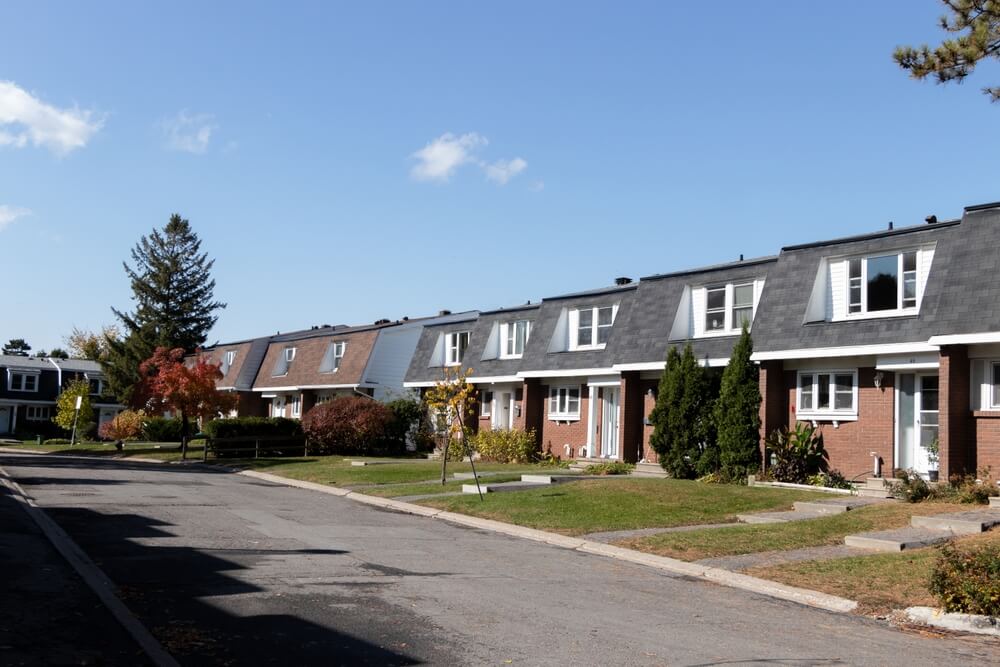Canada is facing a housing crisis. The biggest problem affecting the affordability of Canadian housing is supply not keeping up with demand. Based on authoritative sources for Canadian housing market information, here is a detailed and comprehensive analysis and diversification of Canada’s housing supply state. This study aims to identify and measure housing demand and the existing supply gaps and understand the hurdles that discourage increasing and sustaining supply.
This report provides a comprehensive study and analysis of housing supply trends by CMHC economists. The analysis of housing supply and demand is paramount to the housing affordability challenge in the Canadian Housing market. This report focuses on housing supply trends in major cities to help you better understand the challenges of rising prices and housing affordability.
Highlights of The October 2022 Housing Market
Some of the key highlights of the second edition of the Housing Supply Report, which was published recently in October 2022, include the following:
-
- After a booming economy in 2021, housing starts fell by 5% in the country’s top six CMAs in the first six months of 2022.
- Housing starts increased in Edmonton, Calgary, and Toronto in the first half.
- There were declines observed in Housing starts in Vancouver, Ottawa and Montreal.
- Rising construction costs and material shortages were felt across all markets. This has affected construction time and cost-effectiveness.
- Rising interest rates and the impact of construction costs may continue to affect housing starts in the coming months.
- Rental housing construction is generally strong (except in Toronto) due to the strong demand for rental housing.
- The higher interest rate environment has made developers and construction companies more cautious when starting new housing projects.
Largest Centers of The Canadian Housing Market

Let us discuss the Real Estate market in Canada and understand the situation of the Canadian Housing market and current housing supply trends in the largest centres of Canada:
-
Vancouver Housing Market
-
- Greater Vancouver housing starts fell 23% in the first half of 2022 compared to the first half of 2021.
- With a sharp increase in interest rates, home prices slipped from their 2022 highs.
- Rental housing starts hit a decade high. The rentals in Vancouver have increased because of the robust demand for rental units, increasing rents, and a favourable political environment that has been quite favourable to rentals.
- Construction delays and rising costs have drastically affected both new and existing projects. A recovery in the supply of construction workers due to increased migration will provide some ease in the coming quarters.
-
Vancouver House Prices
-
Homes in Metro Vancouver are valued at $1,148,900, down 0.6% per month. Single-family home prices rose 2% year-on-year to $1.89 million, townhouse prices rose 7% year over year to $1.04 million, and Condo prices rose 5% year over year to $727,000.
-
Edmonton Housing Market

-
-
- In the first half of 2022, Edmonton’s strong demand stimulated single-family and duplex construction.
- High vacancy rates have delayed rental starts, setting a new record for 2021, which has been the highest in over 30 years.
- Housing starts are booming, but there have been some delays because of challenges during construction. These delays are reflected in an increase in the average elapsed time between obtaining a permit and starting construction and the average number of months of construction time by dwelling type.
-
Edmonton House Prices
-
The median home price in the Edmonton area reached $381,451 as of October 2022, growing 1.1% annually and 1.5% monthly. Single-family home prices rose 2.7% year-over-year, townhome prices rose 2.8% year-on-year, and condo apartment prices fell 0.3% year-on-year to $224,252.
-
Calgary Housing Market

Housing starts in the first six months of 2022 remained strong across all housing types compared to the first six months of 2021. Calgary’s average construction time for single-family homes has not been affected by other factors and has remained relatively stable over the past 20 years.
-
-
Calgary House Prices
-
Calgary home sales in October 2022 were down 15% for the year and 2.3% month-to-month. The average single-family home price rose 15% year-over-year to $656,000; the average semi-single-family home price rose 11% year-over-year to $536,000; the average townhouse price rose 9% year-over-year to $356,000; and the average condo price increased 3% year-over-year to $297,000.
-
Toronto Housing Market

-
-
- Toronto had the maximum number of housing starts among Canadian cities in the first half of 2022.
- In Toronto, construction of townhouses and condominiums increased, but private rental starts declined.
- It is becoming difficult for many Toronto families to buy single-family and semi-detached homes because of increasing construction rates and interest rates.
-
Toronto House Prices
-
Average home prices in the Toronto area dropped 6% year-over-year in October 2022 to $1,089,428; this clearly underscores the ongoing slowdown in Toronto’s housing market. Average single-family home prices fell 11% year-over-year to $1.37 million; semi-single-family home prices fell 6% year-on-year to $1.08 million; townhouse prices dropped 6% year-over-year to $1.02 million; and the condo price increased 2% year-over-year to $717,000.
-
Ottawa Housing Market

-
-
- Starting levels for the first 6 months of 2022 remained above the 5-year average despite the lower activity.
- Activity declined in the first half of 2022 compared to the same period in 2021 due to a slowdown in single-family and condominium starts.
- Construction and housing starts of terraced houses and rental apartments are increasing with an extended construction time for all apartment types.
- Disruptions in the supply chain and labour restrictions are some of the core reasons for the recent spike.
-
Ottawa House Prices
-
The average home sale price in the Ottawa housing market has fallen to $624,003 in October 2022. Its price is down 3.1% month-on-month and 2.4% year-on-year. Ottawa’s average home price has fallen 17.6% from its March peak of $757,225. Average home prices in Canada reached $677,873, down 5.4% in one year. The average condo price is $445,691, down 1.2% since September 2022.
-
Montréal Housing Market
-
- Construction activity fell in the first 6 months of 2022, but the pace of housing starts remained higher than usual.
- After a temporary surge, the construction of single-family homes, semi-detached homes, and townhouses declined in several areas of the Montreal metropolitan area.
- Although rental housing openings declined in Montreal, many suburbs continued to grow.
-
Montréal House Prices
-
The median home sale price in Montreal reached $557,009 in October 2022, down 2% annually. Montreal’s home sales are down 35.9% year-over-year, but active listings are up a staggering 50% year-over-year. The price of single-family homes was flat last year. The average price of condominiums is also at the same level as the previous year. Plex’s median price fell 1% year-over-year to $700,000.
Conclusion
Canada’s benchmark home price rose 3.3% year-on-year to $746,000 in September 2022 but fell 1.9% month-on-month. If average house prices in Canada continue this trend, they might slip into negative annual volatility territory in the coming months. The 2022 Home Inventory Report, released recently, shows how inventories in Canadian housing markets have shrunk over the past decade. Housing stock could reach crisis levels in major Canadian centres without intervention.
You May Also Read :
| Ottawa Housing Market | Guide To Ottawa Housing Market |
| Effects of Climate Change on Canada Real Estate | All About Effects of Climate Change |
| Toronto Housing Market | All About Toronto Housing Market |
| Rental Real Estate Housing Market | Overview of Rental Real Estate Housing Market |
Frequently Asked Question (FAQs)
Which region has the highest housing market supply?
The Greater Toronto Area (GTA) housing market is the most important housing market. There was a slight price increase in August and September, but it was still 19% below the median price of $1,334,544 in February 2022.
Which area has the least housing market supply?
The real estate market of Canada area with the least supply in the housing market are Canada's two largest cities, Toronto and Vancouver. These cities are facing housing affordability issues, largely due to low supply and high demand due to low-interest rates.
What does house deficit or shortage mean?
The Canadian housing market has been trending downward lately, but a new analysis suggests prices could fall further than expected. The cost of owning a home in Canada is expected to drop by as much as 23% between February 2022 and December 2023.
What are Canadian mortgage rates in 2024?
As of November 2022, the market consensus on Canadian mortgage rate forecasts was that the central bank would raise mortgage rates by another 0.75% in 2022 or early 2023, to 3.75% in 2022 or early 2023, to reach a peak of 4.50%. They predict that the central bank of Canada will cut interest rates to 2% in 2024 and remain there for the next few years.
Should you buy a house in 2022 or 2023 in Canada's current real estate market?
Canadian house prices, which have fallen 22% from their record highs in February, are expected to fall another 11% in 2023, with sales expected to fall 16% next year. The association predicts that the national median home price will rise 10.8% annually by the end of 2022 to $762,386; in 2023, it will top $786,252. So this is the best time to invest in a house in Canada.



































